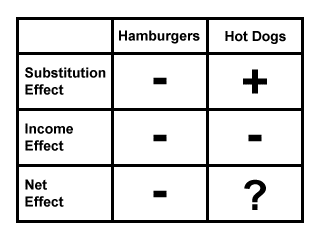Please wait while we process your payment
If you don't see it, please check your spam folder. Sometimes it can end up there.
If you don't see it, please check your spam folder. Sometimes it can end up there.
Please wait while we process your payment

By signing up you agree to our terms and privacy policy.
Don’t have an account? Subscribe now
Create Your Account
Sign up for your FREE 7-day trial
By signing up you agree to our terms and privacy policy.
Already have an account? Log in
Your Email
Choose Your Plan
Individual
Group Discount
Save over 50% with a SparkNotes PLUS Annual Plan!
 payment page
payment page
Purchasing SparkNotes PLUS for a group?
Get Annual Plans at a discount when you buy 2 or more!
Price
$24.99 $18.74 /subscription + tax
Subtotal $37.48 + tax
Save 25% on 2-49 accounts
Save 30% on 50-99 accounts
Want 100 or more? Contact us for a customized plan.
 payment page
payment page
Your Plan
Payment Details
Payment Summary
SparkNotes Plus
You'll be billed after your free trial ends.
7-Day Free Trial
Not Applicable
Renews July 21, 2025 July 14, 2025
Discounts (applied to next billing)
DUE NOW
US $0.00
SNPLUSROCKS20 | 20% Discount
This is not a valid promo code.
Discount Code (one code per order)
SparkNotes PLUS Annual Plan - Group Discount
Qty: 00
SparkNotes Plus subscription is $4.99/month or $24.99/year as selected above. The free trial period is the first 7 days of your subscription. TO CANCEL YOUR SUBSCRIPTION AND AVOID BEING CHARGED, YOU MUST CANCEL BEFORE THE END OF THE FREE TRIAL PERIOD. You may cancel your subscription on your Subscription and Billing page or contact Customer Support at custserv@bn.com. Your subscription will continue automatically once the free trial period is over. Free trial is available to new customers only.
Choose Your Plan
This site is protected by reCAPTCHA and the Google Privacy Policy and Terms of Service apply.
For the next 7 days, you'll have access to awesome PLUS stuff like AP English test prep, No Fear Shakespeare translations and audio, a note-taking tool, personalized dashboard, & much more!
You’ve successfully purchased a group discount. Your group members can use the joining link below to redeem their group membership. You'll also receive an email with the link.
Members will be prompted to log in or create an account to redeem their group membership.
Thanks for creating a SparkNotes account! Continue to start your free trial.
We're sorry, we could not create your account. SparkNotes PLUS is not available in your country. See what countries we’re in.
There was an error creating your account. Please check your payment details and try again.
Please wait while we process your payment

Your PLUS subscription has expired
Please wait while we process your payment
Please wait while we process your payment

Income and Substitution Effects
Changes in price can affect buyers' purchasing decisions; this effect is called the income effect. Increases in price, while they don't affect the amount of your paycheck, make you feel poorer than you were before, and so you buy less. Decreases in price make you feel richer, and so you may feel like buying more.
What if we're looking at two goods at once? For instance, a fast food chain sells hamburgers and hot dogs. If the price of hamburgers goes up, but the price of hot dogs stays the same, you might be more inclined to buy a hot dog. This tendency to change your purchase based on changes in relative price is called the substitution effect. When the price of hamburgers goes up, it makes hamburgers relatively expensive and hot dogs relatively cheap, which influences you to buy fewer hamburgers and more hot dogs than you usually would. Likewise, a decrease in hamburger price would cause you to eat more hamburgers and fewer hot dogs, according to the substitution effect.
The income effect also affects buying decisions when there are two (or more) goods. When the price of hamburgers goes up, it makes you feel relatively poorer, so your tendency might be to buy fewer of both hamburgers and hot dogs.
If you look at the combined results of the income effect and the substitution effect, the total effect is a little unclear. According to the income effect, an increase in the price of hamburgers decreases consumption of both hamburgers and hot dogs. According to the substitution effect, however, hamburger consumption drops, but hot dog consumption rises. Thus, while it is clear what happens to hamburger consumption, since both effects tend to cause a decrease, we cannot be sure what happens to hot dog consumption, since there is both an increase (substitution effect) and a decrease (income effect).

While we cannot be absolutely certain about the net result, in general, the substitution effect is stronger than the income effect. That is, when the price of hamburgers goes up, you will most likely eat fewer hamburgers and more hot dogs, since the change in relative prices (substitution effect) affects you more than the perceived change in your income (income effect).
Another factor influencing demand is one which marketers and advertisers are always trying to understand and target: buyers' preferences. What do people like? When and how do they like it? Still looking at soda, it makes sense that people drink more soda when it's hot, or when they're eating a meal, or when they've been exercising. In these cases, buyers' preferences have changed: they want the soda more, and are therefore willing to pay more for the same good. Likewise, if it's snowing, fewer people will crave a cold soda, and the price they are willing to pay for a cold soda is lower, although they may be willing to pay a little extra money for a hot coffee.
Please wait while we process your payment

